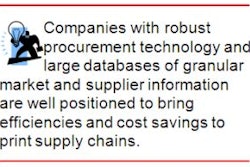
Replacing those accolades were a recall of over 8 million automobiles, over 60 class action lawsuits filed against the company, and company president Akio Toyoda admitting that the company may have grown too quickly.
What can every business — small or large, privately or publicly owned — learn from Toyota's problems? The answer is simple says author Ed Hess: If you aren't careful, you can grow your company to death.
"Bigger, Not Better"
"Bigger is not always better," says Hess, a professor at the University of Virginia's Darden Graduate School of Business and author of the new book Smart Growth: Building an Enduring Business by Managing the Risks of Growth (Columbia Business School Publishing)
In his new book, Hess provides advice that Toyota executives could have used. In it, he debunks the three big myths about business growth:
- Myth 1: All growth is good.
- Myth 2: Bigger is always better.
- Myth 3: All companies must "grow or die."
He replaces those myths with the "3 Ps" for proper growth:
- 1: Plan for growth.
- 2: Prioritize the processes and controls needed to accommodate the growth.
- 3: Pace growth so as not to outstrip capabilities, processes, and controls.
"Contrary to popular opinion, there is no scientific or business basis for the belief that growth is always good," says Hess. "Clearly, it isn't. That belief is actually one that is perpetuated by Wall Street. Shareholders demand short-term growth, so that's what companies deliver, even if what they're doing is unsustainable in the long term.
"My research shows that too much growth can stress a business's culture, controls, processes, and people, eventually destroying its value and even leading the company to 'grow and die,'" he adds.
Outgrowing Quality
In Toyota's case, it made a major strategy change in 2002 when it set out to be the largest automobile sales company. To accomplish that goal quickly, it had to open new plants globally, hire many new employees, expand its outsourcing suppliers, and design its automobiles for faster, cheaper production. The result? The quality of Toyota products began to decline.
"Not only did Toyota products suffer, but its ability to fix those problems suffered," says Hess. "We see just how true that is through the conflicting reports from company executives over what exactly is causing the gas pedal problems and reports indicating communication issues between Japan and its U.S. and European operations. Bottom line: The company outgrew its quality controls and diluted its processes for effectively responding to customer complaints."
With Toyota, the cumulative effect of lots of small changes added together to create big consequences. In the heat of growth and in the heat of the battle to be Number 1, no one was able to "pull the cord and stop the Toyota line." Being the biggest is a different goal from being the best in quality and dependability. When conflicts between speed, growth, and quality arise, no one wins in a "be the biggest" environment, Hess argues.
Lessons for Toyota
The professor suggests that large public companies like Toyota could learn a few lessons about growth from the private companies he has researched. He recently conducted a study of 54 high-growth private companies located in 23 different states. Through it, he found that CEOs with prior high-growth experiences acquired a healthy respect for the risks of growth and espoused the (ironically named) "gas pedal" approach to growth — letting up on the growth pedal to allow processes, controls and people to catch up. They learned that a business, like an engine, can run at a red-line pace for only so long.
"Many businesses strive for continuous high growth," says Hess. "Unfortunately, the research shows that sustained high growth is the exception, not the rule. Fewer than 10 percent of public companies are able to grow above industry or GDP averages for five years or more."
The moral of the story? Be realistic about growth — and understand that it is a complex change process dependent on human behavior.
"Humans, like markets, are not efficient or rational actors all the time," says Hess. "Growth can be good and it can be bad. You can increase the probability of a good outcome if you assess the risks of growth and proactively manage those risks simultaneously as you grow. Grow for the right reasons and grow smart."
Hess spent over 30 years in the business world, beginning his career at Atlantic Richfield Corporation and also serving as a senior executive at Warburg Paribas Becker, Boettcher & Company, The Robert M. Bass Group and Arthur Andersen. He is the author of seven books, over 40 practitioner articles, and over 40 Darden cases dealing with growth systems, managing growth and growth strategies.
His other books include The Road to Organic Growth: How Great Companies Consistently Grow Marketshare from Within
His current research focuses on the Darden growth/innovation model, the challenges of managing private company growth; and building enduring organizations. Professor Hess has taught in executive education programs for Harris Corporation, Cigna, Timken, Genworth Financial, Pitney Bowes, Unilever Russia, Westinghouse Nuclear and at IESE (Barcelona) and the Indian School of Business.
















